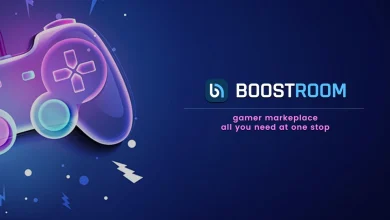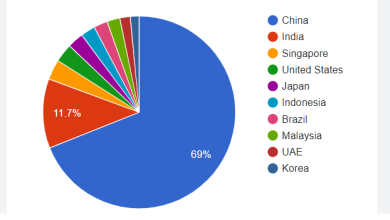The Growing Popularity of In-Game Economy in Gamer Marketplaces

The gamer marketplace has undergone significant changes over the years. With the increasing complexity of online games and the evolving needs of players, the concept of in-game economies has emerged as one of the most compelling aspects of the gaming industry today. The in-game economy refers to the virtual transactions and exchanges of in-game items, currencies, and services that occur within games. As this economy expands, the rise of marketplaces for gamers has created new opportunities for players, game developers, and sellers alike. This article explores the growing popularity of in-game economies and how they are shaping the future of gamer marketplaces.
Understanding In-Game Economies
In-game economies are virtual ecosystems where players trade in-game assets such as currency, items, and services. These economies often mirror real-world economic principles but within a gaming environment. Whether it’s purchasing skins, upgrading characters, or acquiring in-game resources like gold or gems, these transactions are part of the ever-expanding in-game economy.
For example, in many gamer marketplaces, players can buy and sell virtual items such as game skins, weapons, and accessories that are specific to a game’s ecosystem. Additionally, boosting services—where players offer to help others reach higher levels or unlock achievements—are becoming increasingly popular. These types of services are examples of how in-game economies can grow, creating a marketplace for players to buy and sell services, items, and even accounts.
The Role of Gamer Marketplaces
As in-game economies evolve, the marketplace for gamers has become an essential platforms for buying, selling, and trading virtual goods and services. These marketplaces act as a bridge between the gaming world and real-world transactions, allowing gamers to exchange virtual items and services for real-world currency.
Game developers often create in-game currencies (like V-bucks in Fortnite or gold in World of Warcraft) that players can use to purchase virtual goods. However, the rise of gamer marketplaces means players can now buy and sell these in-game items and services directly with each other, often bypassing the official store or auction house within the game.
For instance, boosting services, where players hire others to increase their rankings or level up their characters, have become common offerings in these marketplaces. By enabling players to buy and sell such services, these marketplaces add a new dimension to the in-game economy, creating a profitable venture for sellers while offering a quick solution for buyers looking to enhance their gaming experience.
In-Game Economy and Virtual Goods
Virtual goods are a significant component of in-game economies. Items such as skins, weapons, avatars, or other collectibles have become highly sought after by players. These goods often have real-world value, either through direct sales on marketplaces for gamers or by increasing a player’s in-game progression or status.
The trading of virtual goods has surged due to the following reasons:
- Customization: Players enjoy customizing their gaming experience, whether it’s changing the appearance of their character or gaining access to exclusive items. Virtual goods allow them to do so, and they are often willing to pay a premium for these items.
- Status and Prestige: Many in-game items carry prestige, signaling a player’s success or skill level within the game. Owning rare or limited-edition items often boosts a player’s status among peers.
- Practicality: Some virtual goods enhance gameplay, such as upgraded weapons, tools, or skins that provide in-game benefits. These items improve performance or open up new opportunities, making them essential for many players.
The sale of virtual goods on gamer marketplaces provides an opportunity for gamers to monetize their time, effort, or even expertise. Whether it’s selling rare items they’ve earned through in-game achievements or offering services like boosting, the virtual goods market is booming.
The Rise of Boosting Services
One of the most notable trends in the gamer marketplace is the growing demand for boosting services. Boosting refers to a service where players pay others to increase their ranking, level, or complete difficult in-game objectives for them. This could be anything from leveling up a character to unlocking hard-to-reach achievements.
This service has become a significant part of the in-game economy because it allows players who are pressed for time or struggling with difficult game mechanics to progress more efficiently. Boosting services have their place in marketplaces for gamers, where players can choose from various providers who offer services based on their specific needs and budgets.
For instance, if a player needs help achieving a high rank in a competitive multiplayer game, they might hire a skilled player to boost their rank. This trend has not only created a new way for players to interact with each other but also led to the rise of businesses focused solely on boosting services. A platform like Boostroom may offer such services, helping players grow their accounts, improve their rankings, or achieve other in-game goals.
Player-to-Player Transactions
A significant aspect of the in-game economy in gamer marketplaces is the player-to-player (P2P) transaction model. In traditional games, developers controlled the in-game economy, setting prices and availability for virtual goods. However, in the P2P model, players have more control, and they can negotiate prices for items or services directly with each other.
This shift has several benefits:
- Variety: With P2P transactions, players have access to a broader range of items and services, sometimes at better prices than those offered by official in-game stores.
- Competition: Because players can set their prices, the in-game economy becomes more competitive, which can lead to better deals and lower prices for buyers.
- Personalization: Players can negotiate and customize deals according to their individual needs. For example, if a player needs specific items or services for their character, they may be able to find someone in the marketplace willing to fulfill those requirements.
This model is popular in many gamer marketplaces, which may facilitate not only the buying and selling of goods but also the exchange of services like coaching or boosting.
The Appeal of Digital Assets in the Gaming Community
The idea of owning digital assets is gaining ground in the gaming world. As in-game economies continue to grow, the concept of owning, selling, and trading these digital assets has become more appealing to players. Many virtual goods, such as skins or rare collectibles, have value in the real world due to their popularity or rarity. Some items are considered highly desirable by players, making them valuable commodities in the in-game economy.
Marketplaces that cater to these digital assets are growing in popularity. These platforms allow gamers to trade their digital goods in exchange for real money, which enhances the overall appeal of participating in the in-game economy. Sellers benefit by monetizing their gameplay, while buyers gain access to valuable virtual assets that enhance their gaming experience.
Conclusion
The in-game economy in gamer marketplaces is flourishing as players increasingly engage in buying, selling, and trading virtual goods and services. From virtual items to boosting services, the ecosystem is vast and diverse, providing new opportunities for gamers, developers, and third-party sellers. The rise of player-to-player transactions, combined with the increased demand for exclusive items and services, has created a dynamic market that continues to evolve.
Whether you’re a casual player looking to enhance your experience or a seller aiming to capitalize on the in-game economy, understanding how these virtual markets operate is key to success. Platforms like Boostroom may offer players the tools and services needed to excel in this growing landscape, providing even more options for those looking to buy and sell in-game goods and services.




